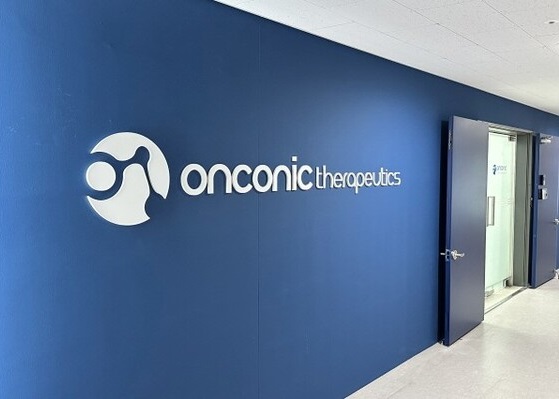Preclinical results published in top-tier journal IJBS highlight Nesuparib’s dual-target mechanism and potential to expand PARP inhibitor indications beyond BRCA mutations

On October 10, Onconic Therapeutics announced that preclinical research results for its synthetic lethal dual-target anticancer candidate Nesuparib (JPI-547) have been published in the International Journal of Biological Sciences (IJBS), an SCI-indexed international journal.
Ranked in the top 10% of SCI journals in life sciences, molecular biology, and biochemistry, IJBS is recognized globally for its high citation and impact metrics. Onconic stated that this publication affirms the international scientific value of Nesuparib and its research significance.
The study, led by Professor Doyeon Oh’s team at Seoul National University College of Medicine, demonstrated that Nesuparib extends therapeutic potential beyond that of conventional PARP (Poly ADP-ribose polymerase) inhibitors approved for pancreatic cancer maintenance therapy.
According to the paper, Nesuparib showed comparable growth inhibition in BRCA2-deficient pancreatic cancer cells at roughly one-tenth the concentration of olaparib, a standard maintenance therapy, and exhibited stronger tumor suppression in animal models. Notably, Nesuparib also showed antitumor activity in HRD-negative cells. In Wnt-addicted pancreatic cancer—driven by RNF43 mutations and dependence on Wnt signaling—Nesuparib inhibited both Wnt/β-catenin and YAP oncogenic pathways, confirming its dual-target mechanism.
These findings suggest Nesuparib could broaden treatment eligibility beyond BRCA-mutated patients to include those with Wnt-addicted tumors.
Further research revealed that Nesuparib can convert “cold” tumors, which resist immune infiltration, into “hot” tumors, where immune cells actively attack cancer cells. This immune activation was associated with increased Type I interferon (IFN) signaling, a key component of antitumor immunity. In xenograft models using the pancreatic cancer cell line Capan-1, Nesuparib elevated serum 2′3′-cGAMP levels, directly activating the cGAS-STING pathway, a core mechanism of innate immune defense.
Given that pancreatic cancer has a five-year survival rate of only 11% and limited treatment options, Nesuparib’s promise has already been recognized. The drug was designated an Orphan Drug by the U.S. FDA in 2021 and as a development-stage rare drug in Korea.
In August, Onconic completed Phase 1b clinical trials of Nesuparib in patients with metastatic pancreatic cancer and received MFDS approval to initiate a Phase 2 clinical study.
An Onconic Therapeutics spokesperson stated, “This achievement reinforces Nesuparib’s potential as a first-line treatment for pancreatic cancer and enhances its global value and out-licensing prospects.”
Nesuparib is a first-in-class dual-target synthetic lethal therapy designed to inhibit both Tankyrase and PARP, blocking cancer cell growth and DNA repair simultaneously. The company expects it to overcome the limitations of existing PARP inhibitors, whose efficacy is restricted to patients with homologous recombination deficiency (HRD), particularly those with BRCA1/2 mutations.

